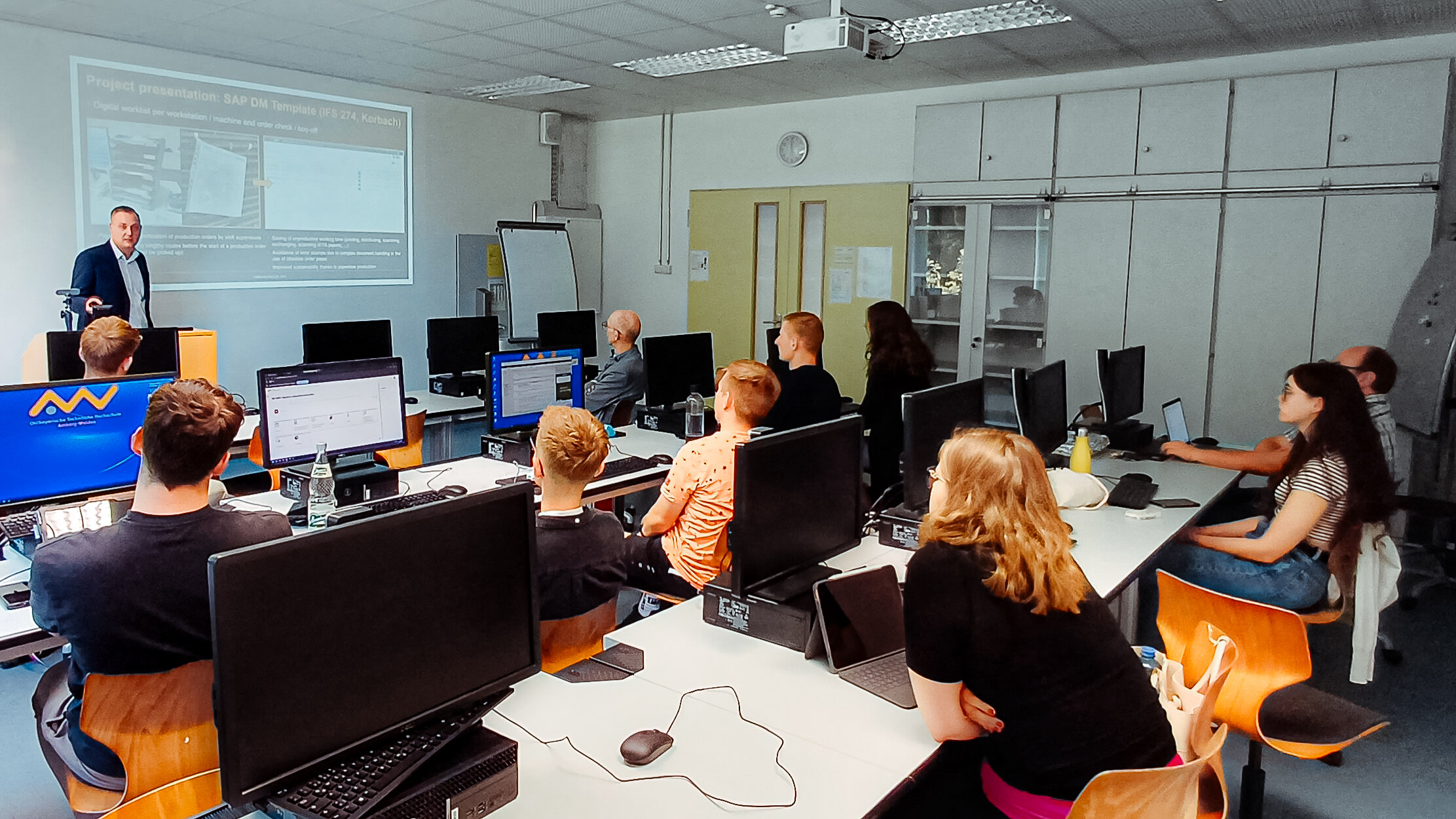“The Netflix of Industry” – Guest Lecture on Cloud, AI, and MES
What does the digital future of industry look like?
In the master's course “Integrated Order Processing,” industrial engineering students gained exciting first-hand insights: Christian Köllner, head of “SAP Manufacturing” and member of the management board at SAP project house IGZ, spoke about current challenges and future developments relating to manufacturing execution systems (MES) and the digital control of industrial processes. The students already had prior knowledge of SAP MES from their lectures.

The SAP systems (SAP ERP and SAP MES) provided as part of the "SAP-based Smart Factory" enable students to gain experience with real systems while still studying. This makes it easier for them to enter the workforce later on and fundamentally strengthens their background knowledge of processes and systems. The presentation therefore served not as an introduction, but as a practical deep dive—with a clear view of where digitalization in production and logistics is headed.
“We operate where it hurts the customer when things don't work,” said Köllner at the outset. He was referring to critical processes: for example, in logistics, when goods cannot be shipped, or in production, when machine downtime becomes expensive. Especially in an industrial environment with machine parks that are decades old, a structured, engineering-based approach is crucial to creating sustainable and functional solutions.
Köllner vividly described the reality of many companies: a “shop floor jungle” with isolated systems, old machines, and media breaks. Many processes are still based on Excel spreadsheets – according to Köllner, the “world's largest MES.” The result is paper evaluations, redundant data maintenance, and transitional solutions that are difficult to maintain.
Modern SAP-based MES solutions address this issue by creating a seamless connection between planning (ERP) and execution (MES). The uniform nomenclature within the SAP system world is particularly advantageous, as it facilitates integration, maintenance, and scalability.
In addition to traditional on-premise installations, cloud solutions in particular came into focus. Köllner compared these to “the Netflix of industry”: new functions are regularly available without the need for local maintenance. For companies that do not yet want to switch completely to the cloud, SAP offers flexible interim solutions with “Landscape as a Service.”
The topic of artificial intelligence was also discussed, particularly its potential in the shop floor environment. Currently, however, the use of intelligent applications is realistic and efficiently implementable primarily in the cloud context.
A highlight was the live demo: Köllner used the current SAP MES cloud solution “SAP DM” to demonstrate how modern software solutions can control, monitor, and further develop processes. This made it clear to the students how closely theory and practice are linked in this area.
The presentation not only offered in-depth technical knowledge, but also valuable insights into real-world applications. For the aspiring industrial engineers, it was an excellent opportunity to understand technological developments early on in their overall context – and to see which skills will be in demand in the future.

TEAMWORK is a top priority at IGZ. This is also evident at the annual departmental events. It's simply fun to see how everyone shows solidarity at different events, sometimes away from work, and also celebrates together. It's more than just a team, these are real friendships!